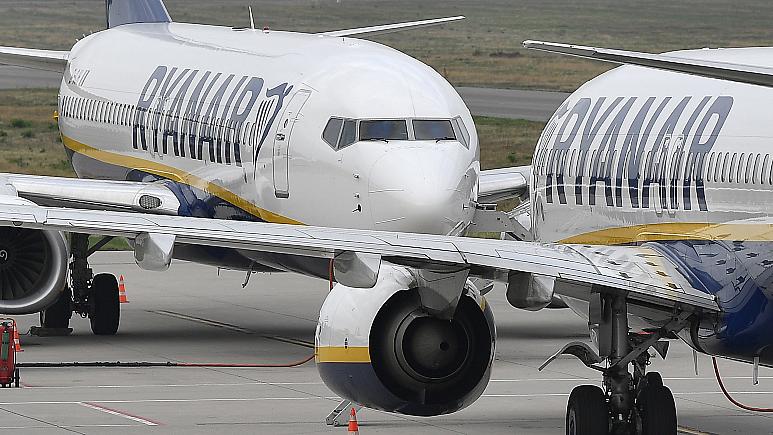Italy threatens Ryanair with flight ban over COVID-19 safety rules

Italy’s civil aviation authority ENAC threatened to suspend Ryanair’s permit to fly to the country citing non-compliance with COVID-19 safety rules.
ENAC said in a statement that “Ryanair systematically does not comply” with national regulations to reduce the risk of COVID-19 transmission when flying to and from Italian airports.
“Not only is the obligation of distancing between passengers not observed, but also the conditions that allow derogation from this distancing are not met,” it added.
It warned that if the Irish airline persists in flouting the rules, it could require Ryanair to only fly planes at half capacity or worse, “suspend all air transport activities at national airports, requiring the carrier to re-route all passengers already in possession of tickets”.
Ryanair rejected ENAC’s accusations as “factually incorrect” in a statement to Euronews.
“Ryanair complies fully with the measures set out by the Italian government and our customers can rest assured that we are doing everything to reduce interaction on both our aircraft and at airports to protect the health of our passengers when flying Ryanair,” it added.
It argued that it encourages all passengers to check-in online and that specific boarding procedures have been put in place to “avoid unnecessary gathering of passengers both at boarding gates and onboard the aircraft”.
To fly planes at full capacity to and from Italy, airlines must ensure that social distancing is respected before and after take-off, including during boarding and transfer on shuttle buses. Staff and passengers must also wear masks throughout the flight and change them every four hours.
Ryanair operates out of more than 25 Italian destinations.
Italy was the first European countries to be hit hard by the global pandemic and to impose lockdown measures to curb the spread of the deadly virus.
More than 35,100 people have lost their lives to COVID-19 in the country and over 248,400 have been infected by the disease, according to a tally from Johns Hopkins University.

















